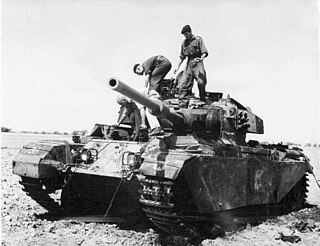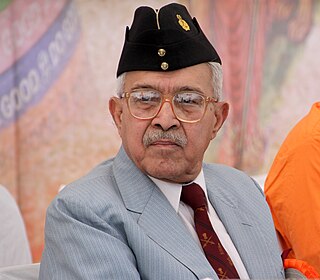
Since the Partition of British India in 1947 and subsequent creation of the dominions of India and Pakistan, the two countries have been involved in a number of wars, conflicts, and military standoffs. A long-running dispute over Kashmir and cross-border terrorism have been the predominant cause of conflict between the two states, with the exception of the Indo-Pakistani War of 1971, which occurred as a direct result of hostilities stemming from the Bangladesh Liberation War in erstwhile East Pakistan.

The Indo-Pakistani War of 1947–1948, or the First Kashmir War, was a war fought between India and Pakistan over the princely state of Jammu and Kashmir from 1947 to 1948. It was the first of four Indo-Pakistani wars that was fought between the two newly independent nations. Pakistan precipitated the war a few weeks after its independence by launching tribal lashkar (militias) from Waziristan, in an effort to capture Kashmir and to preempt the possibility of its ruler joining India. The inconclusive result of the war still affects the geopolitics of both countries.

The Indo-Pakistani War of 1965 or the Second Kashmir War was a culmination of skirmishes that took place between April 1965 and September 1965 between Pakistan and India. The conflict began following Pakistan's Operation Gibraltar, which was designed to infiltrate forces into Jammu and Kashmir to precipitate an insurgency against Indian rule. It became the immediate cause of the war. The seventeen-day war caused thousands of casualties on both sides and witnessed the largest engagement of armored vehicles and the largest tank battle since World War II. Hostilities between the two countries ended after a ceasefire was declared through UNSC Resolution 211 following a diplomatic intervention by the Soviet Union and the United States, and the subsequent issuance of the Tashkent Declaration. Much of the war was fought by the countries' land forces in Kashmir and along the border between India and Pakistan. This war saw the largest amassing of troops in Kashmir since the Partition of India in 1947, a number that was overshadowed only during the 2001–2002 military standoff between India and Pakistan. Most of the battles were fought by opposing infantry and armoured units, with substantial backing from air forces, and naval operations.

The Northern Light Infantry Regiment (NLI) is a light infantry regiment in the Pakistan Army, based and currently headquartered in Gilgit, Pakistan. Along with other forces of the Pakistani military, the NLI has the primary responsibility of conducting ground operations in the interest of defending the strategically-important territory of Gilgit−Baltistan, a Pakistani-controlled region that constitutes part of Kashmir, which has been disputed between Pakistan and India since 1947. The NLI draws a majority of its recruits from native tribes present in the nearby mountainous areas who are reportedly less prone to altitude sickness and the cold temperatures that characterize high-altitude mountain warfare, allowing the regiment to conduct its duties optimally.
Operation Gibraltar was the codename of a military operation planned and executed by the Pakistan Army in the disputed territory of Jammu and Kashmir in August 1965. The operation's strategy was to covertly cross the Line of Control (LoC) and incite the Muslim-majority Kashmiri population's uprising against the Indian Government. The military leadership believed that a rebellion by the local Kashmiri population against Indian authorities would serve as Pakistan's casus belli against India on the international stage.

The Battle of Chawinda was a major engagement between Pakistan and India in the Second Kashmir War as part of the Sialkot campaign. It is well-known as being one of the largest tank battles in history since the Battle of Kursk, which was fought between the Soviet Union and Nazi Germany in World War II.

The concept of an Indo-Pakistani Confederation advocates for a political confederation consisting of the sovereign states of India and Pakistan as a means of ending bilateral conflicts and promoting common interests in defence, foreign affairs, and cultural and economic development. While this idea does not propose to end the sovereign existence of either nation through reunification, it is aimed to resolve the conflicts afflicting the Indian subcontinent since the partition of India in 1947.

The 2001–2002 India–Pakistan standoff was a military standoff between India and Pakistan that resulted in the massing of troops on both sides of the border and along the Line of Control (LoC) in the region of Kashmir. This was the second major military standoff between India and Pakistan following the successful detonation of nuclear devices by both countries in 1998, the first being the Kargil War of 1999.

Lieutenant General Mohammad Ahmed Zaki, PVSM, AVSM, VrC is a retired Indian Army general. He was born in a Hyderabadi family with a long history of service in the Nizam's Army. His father was a retired Brigadier in the Nizam's Cavalry forces.

Captain Gopalaswami Parthasarathy, popularly known as G. Parthasarathy is a former commissioned officer in the Indian Army (1963-1968) and a diplomat and author. He has served as the High Commissioner of India, Cyprus (1990–92), Ambassador of India to Myanmar, 1992–95, High Commissioner of India to Australia (1995–99) and the High Commissioner of India to Pakistan (1999-2000). Later he was the spokesperson of the Ministry of External Affairs and the Prime Minister's Office.
Praveen Swami is an Indian journalist and author specialising on international strategic and security issues. He is currently the Group Consulting Editor at Network18 Group. He was the Diplomatic Editor of The Daily Telegraph newspaper between September 2010 – October 2011, after which, he became the National Editor of The Indian Express newspaper from August 2014- January 2017. Swami is the author of two books on the India-Pakistan conflict in Kashmir. He was described by the BBC as "one of India's foremost experts of Islamist terrorism".

Lieutenant General Kamal Davar is a retired Indian military officer, and security expert who served as the first director general of the Defense Intelligence Agency and deputy chief of the Integrated Defense Staff.
Lieutenant General Syed Ata HasnainPVSM, UYSM, AVSM, SM, VSM & Bar is a retired General of the Indian Army. His last assignment in service was as the Military Secretary of the Indian Army. Prior to that, he commanded the Indian Army's 15 Corps in the state of Jammu and Kashmir, amongst other appointments. He has also commanded 21 Corps (Strike). In 2018, General Hasnain was appointed Chancellor of Central University of Kashmir.

United Service Institution of India (USI) is a national security and defence services think tank based in New Delhi, India. It describes its aim as the "furtherance of interest and knowledge in the art, science and literature of the defence services".
20th Lancers is an armoured regiment in the Armoured Corps of the Indian Army. The regiment distinguished itself in operations with its defence of Chhamb in Jammu and Kashmir during the 1965 Indo-Pakistan War and won one Maha Vir Chakra. It has provided one Chief of Army Staff and two Army Commanders.

Lieutenant General Om Prakash, PVSM, UYSM, AVSM, SM is a retired General of the Indian Army. He was the commander of the XV Corps in 2012.
Manohar Lal Chibber is an Indian Army officer and writer, known for his involvement in the Siachen conflict of 1986. He held the position of a Lieutenant General in the Indian Army and is a recipient of the Ati Vishisht Seva Medal and the Param Vishisht Seva Medal.
Lieutenant General Kashmir Singh Katoch, MC was an Indian Army General and military adviser to the Maharaja Hari Singh of Jammu and Kashmir, officiating as the Chief of Staff of the State Forces during the Indo-Pakistani War of 1947. He later served as the Vice Chief of Army Staff of the Indian Army.

Major General Kulwant Singh, UYSM is a former General Officer of the Indian Army. He last served as the General Officer Commanding (GOC) the 27 Mountain Division. He had earlier served as the Deputy GOC 54th Infantry Division that was a part the Indian Peace Keeping Force (IPKF) in Sri Lanka, and as Deputy Commandant and Chief Instructor of the Infantry School at Mhow.
Bleed India with a Thousand Cuts is a military doctrine followed by the Pakistani military against India. It consists of waging covert war against India using insurgents at multiple locations. According to scholar Aparna Pande, this view was put forward in various studies by the Pakistani military, particularly in its Staff College, Quetta. Peter Chalk and Christine Fair cite the former director of the Inter-Services Intelligence (ISI) explicating the strategy.












